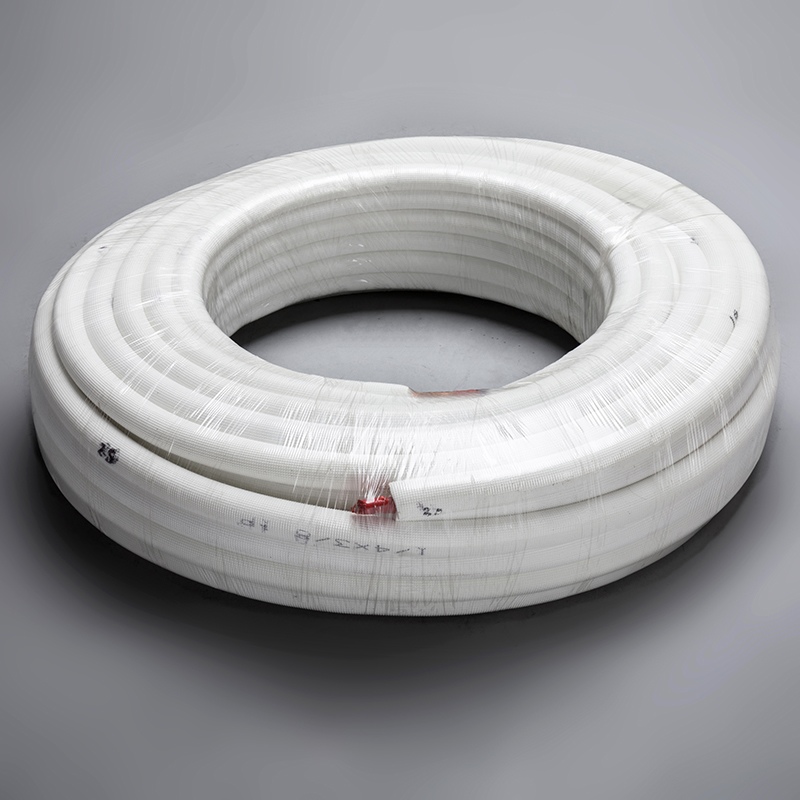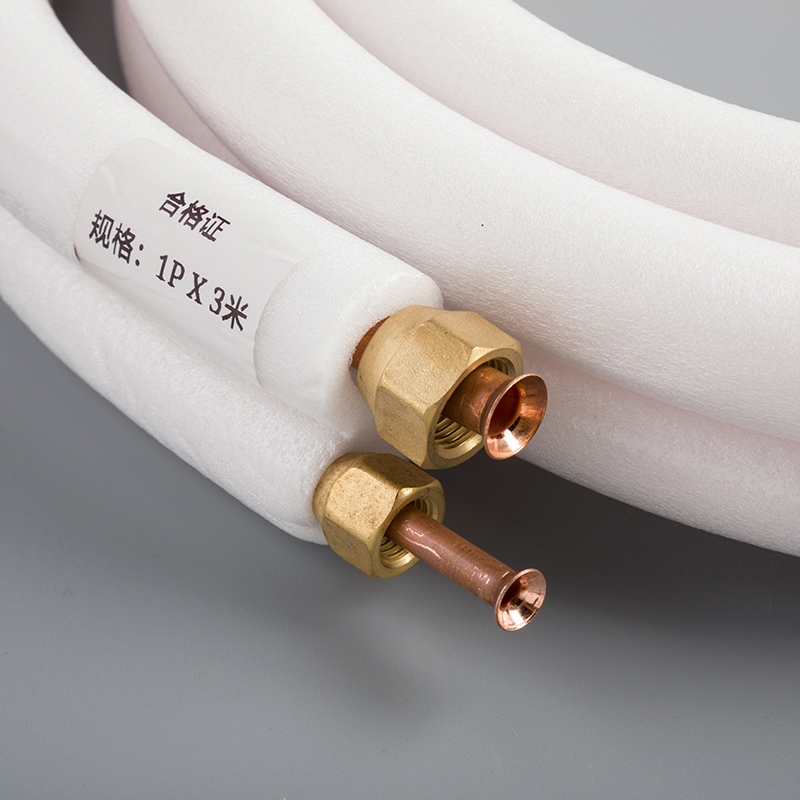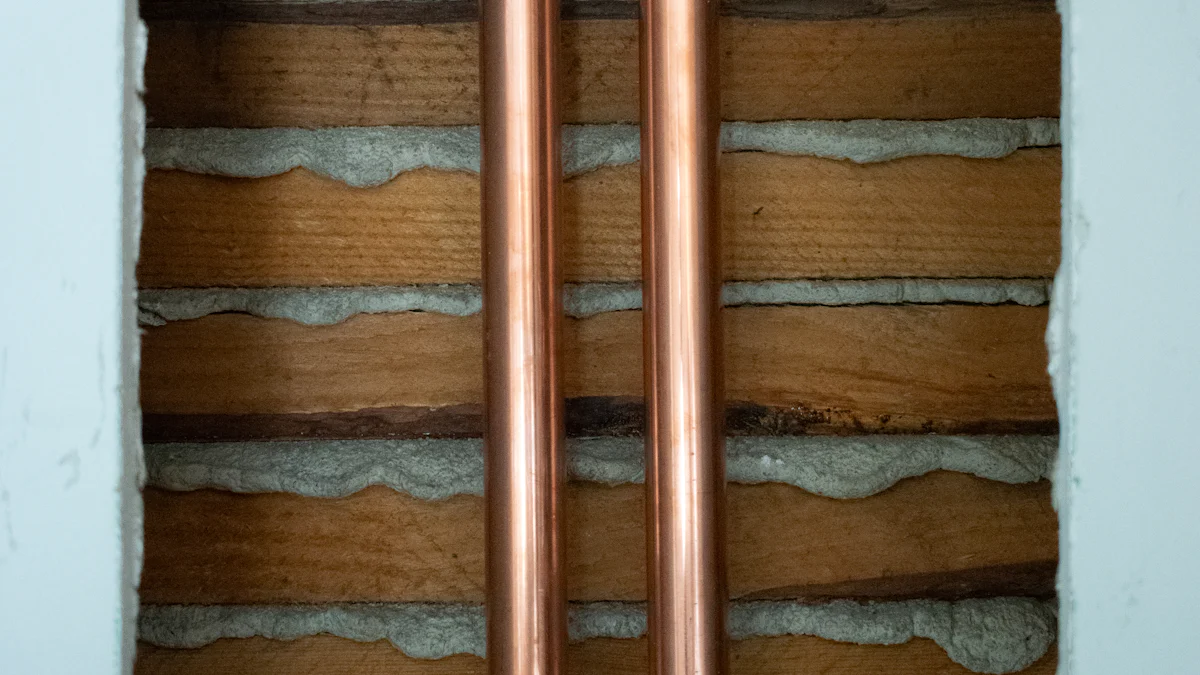Why Insulating Copper Pipes in Air Conditioners is Crucial

Maintaining air conditioner efficiency is crucial for optimal performance. Write a 'Why' blog post on 'Importance of Insulating Copper Pipes in Air Conditioners' to highlight how insulating copper pipes plays a key role in this process by ensuring stable refrigerant temperatures. This blog will delve into the significance of insulation, its benefits, and practical steps to enhance your HVAC system. Let's explore how this simple yet effective technique can lead to cost savings and energy efficiency.
Importance of Insulation

Insulation plays a vital role in maintaining the efficiency of air conditioners. By ensuring stable refrigerant temperature, it enables the HVAC system to deliver optimal cooling and heating. This stability is essential for the overall performance of the unit, allowing it to function effectively regardless of external conditions.
In addition to temperature maintenance, insulation contributes significantly to energy efficiency. It facilitates reduced energy consumption, leading to substantial cost savings for homeowners. By preventing heat loss and maintaining consistent temperatures, insulation helps the air conditioner operate more efficiently, ultimately lowering energy bills.
Furthermore, insulation serves as a barrier against condensation, offering moisture control and protection against humidity. This is crucial in preventing damage to the system due to moisture buildup and ensuring that the air conditioner functions optimally even in humid environments.
As an expert in industrial refrigeration systems once said, "Industrial systems often employ multistage cooling where several compressors and multiple evaporators are utilized." This highlights the importance of insulation not only in residential but also in industrial settings where complex cooling mechanisms are employed.
Insulating copper pipes in air conditioners is not just about maintaining temperature; it's about ensuring efficient operation, reducing costs, and prolonging the lifespan of the HVAC system.
Benefits of Insulation
Enhanced System Performance
Insulating copper pipes in air conditioners leads to enhanced system performance. By improving cooling efficiency, the HVAC system can operate more effectively, ensuring a comfortable indoor environment. Additionally, the insulation contributes to an extended system lifespan, reducing the need for frequent repairs and replacements.
Environmental Impact
The lower carbon footprint associated with insulating copper pipes benefits both the environment and homeowners. It promotes sustainable energy use by optimizing the HVAC system's efficiency, thereby reducing overall energy consumption. This eco-friendly approach aligns with modern sustainability practices, emphasizing the importance of energy conservation.
Practical Advantages
Insulation offers practical advantages that go beyond performance enhancements. It helps in reducing leakage, preventing energy loss and maintaining system integrity. As a result, homeowners can enjoy lower maintenance costs over time, as the well-insulated copper pipes require less frequent upkeep.
How to Insulate

Materials Needed
Insulation Tape
To effectively insulate copper pipes in air conditioners, insulation tape is a crucial material. The tape provides a protective layer that helps prevent heat loss and maintains stable refrigerant temperatures within the lines. It is flexible and easy to install, making it an ideal solution for enhancing the efficiency of your HVAC system.
Special Copper Pipes and Fittings
In addition to insulation tape, using special copper pipes and fittings is essential for proper insulation. These specialized components are designed to connect the outdoor unit with the indoor unit efficiently. By utilizing these specific materials, you can ensure that your air conditioner operates at its optimal performance level, contributing to energy savings and extended system lifespan.
Step-by-Step Guide
Measuring and Cutting Insulation
Begin the insulation process by accurately measuring and cutting the insulation materials according to the dimensions of your copper pipes. Precision in measurement is key to ensuring a snug fit that effectively covers the pipes without leaving any gaps for heat transfer. Use appropriate tools such as a cutter or scissors to achieve clean cuts for seamless insulation.
Applying Insulation Properly
Once you have prepared the insulation materials, it's time to apply them properly onto the copper pipes. Start by wrapping the insulation tape around the pipes securely, ensuring that there are no exposed areas vulnerable to heat loss. Pay attention to overlapping sections neatly to create a continuous barrier against temperature fluctuations.
Insulating copper pipes in air conditioners is a straightforward yet impactful process that significantly enhances the efficiency and performance of your HVAC system. By following these simple steps and using the recommended materials, you can enjoy improved energy efficiency, reduced costs, and a more sustainable cooling experience.
Insulating copper pipes in air conditioners offers economic benefits and practical advantages. This cost-effective practice helps maintain stable temperatures, reduces energy consumption, and extends the system's lifespan. By insulating the pipes properly, homeowners can enjoy improved efficiency and lower maintenance costs. Additionally, it contributes to environmental sustainability by optimizing energy use. Considering these factors, insulating copper pipes is a valuable investment for enhancing HVAC performance and ensuring long-term savings.
See Also
Benefits of Opting for Copper Pipes in Air Conditioning
The Importance of Pure Copper Pipes in Air Conditioning Efficiency
Enhancing Air Conditioner Efficiency with Copper Pipe Insulation Tips
Key Ways Copper Pipes Transform Air Conditioning Systems
The Impact of Pure Copper Pipes on Air Conditioning Innovation


